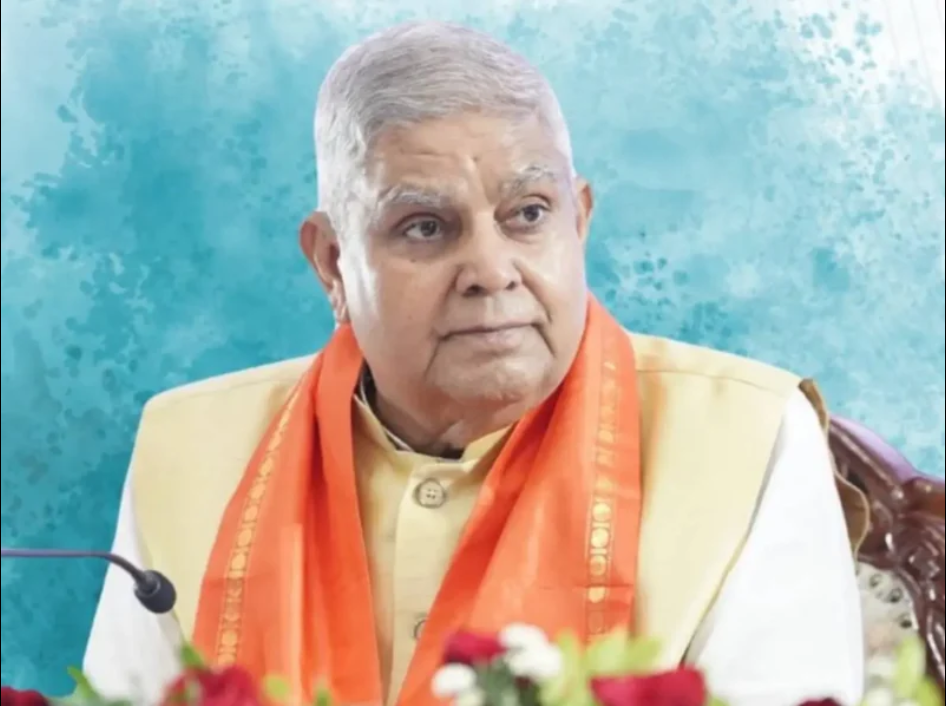Breaking News: Resignation Announced
On July 21, 2025, Vice President Jagdeep Dhankhar officially resigned from his post, sending a brief resignation letter to President Droupadi Murmu. He cited ongoing health concerns and the need to prioritize medical advice, making his resignation effective immediately under Article 67(a) of the Constitution of India.
In his letter, he thanked President Murmu for a “wonderful working relationship,” along with Prime Minister Narendra Modi, the Council of Ministers, and Members of Parliament, citing their collaboration as invaluable during his tenure.
Biography & Political Journey
Career Highlights
Born: 18 May 1951 in Rajasthan
Education: B.Sc and LLB from University of Rajasthan
Political Career: Lok Sabha MP in 1989, state minister, MLA in Rajasthan 1993–1998, Governor of West Bengal (2019–2022), Vice President and Rajya Sabha Chair from August 2022 to July 2025.
Tenure as Vice President
Elected in August 2022 with a record 74% vote share, Dhankhar took charge as the ex officio Chairman of the Rajya Sabha. His term was marked by firm leadership and a reputation for both impartiality and spirited oversight of parliamentary proceedings.
Why Resigned?
The Health Factor:
Dhankhar, aged 74, had been hospitalized earlier in 2025 for cardiac issues. While he resurfaced briefly in Parliament, the strain of the responsibilities prompted him to step down to focus on health recovery. Official communications confirmed that his resignation followed medical counsel, though no details about the condition were disclosed.
Historical Significance: A Rare Mid-Term Exit
Dhankhar is only the third Vice President in Indian history to resign before completing his term—joining VV Giri and Bhairon Singh Shekhawat.
His departure mid‑term underscores the constitutional gravity and institutional pressure bearers of this high office.
Political Implications & Leadership Shifts
Impact on Government Dynamics
His resignation occurs during a critical Monsoon Session of Parliament, adding urgency and political uncertainty, especially given prospective changes within the Bharatiya Janata Party (BJP) leadership structure.
Effect on BJP Strategy
With the party already scouting changes in high-level positions, Dhankhar’s vacated office could spark broader organizational and administrative recalibrations across governmental tiers.
Parliamentary Legacy: Fair Chair or Partisan Leader?
Opposing Views
In late 2024, 60 Opposition MPs submitted a notice of no confidence citing alleged partisan conduct by Dhankhar as Rajya Sabha Chairman. The motion was later rejected by the Deputy Chairman, who criticized it as flawed and politically motivated.
Despite accusations, senior party leaders—including Kiren Rijiju—hailed Dhankhar as professional, impartial, and fair in his conduct of parliamentary proceedings.
Constitutional Process: What Happens Next?
Vice Presidential Election Procedure
According to Article 67 and 66, an early election will be held for the Vice President. The electoral college (composed of MPs from both houses) will vote via single transferable vote system. The new Vice President must be elected promptly, as mandated by the Constitution.
Interim Administration
Reflecting on Dhankhar’s Tenure
Stability Amid Turbulence
He often struck a balance between firm oversight and procedural adherence, making his Rajya Sabha chairmanship notable for effectiveness despite partisan political climate.
Public Communications
Creators of public content frequently quoted his remarks on Indian cultural identity—most famously during the Marathi Sahitya Sammelan, he declared, “The best way to conquer a territory is to overtake its culture and destroy its language”.
State-Level Influence
Dhankhar’s heated confrontations with West Bengal’s Chief Minister Mamata Banerjee during his governor tenure created visibility—and controversy—for the constitutional role of Governor in a federal democracy.
A Personal Farewell: Message from Dhankhar
From his resignation letter:
“To prioritise health care and abide by medical advice, I hereby resign as the Vice‑President of India… It has been a privilege and honour to serve during this transformative era of national development. The trust, warmth, and affection from all Members of Parliament will be cherished eternally.”
No political agenda or future plans were disclosed—his exit grounded in self‑care and constitutional protocol.
Key Takeaways
| Topic | Implication |
|---|---|
| Resignation Reason | Health concerns; no hint of political fallout |
| Third ever mid-term VP resignation | Rare constitutional instance |
| Election Triggered | Early poll as per Article 67 |
| Political Fallout | May prompt BJP organizational shift |
| Historical Legacy | Known for parliamentary decorum, cultural commentary |
| Opposition View | Mixed—called partisan yet dismissed notice |
| Public Impact | Sparks debate on VP’s role and accountability |
Looking Ahead: What Comes Next
A vice presidential election will be organized soon; timelines are expected to be announced by the Election Commission soon after the vacancy.
Candidates will likely emerge from major political parties, with strategic nominations aligning with BJP’s broader leadership plans.
The transition also offers an opportunity to evaluate the role of the Rajya Sabha chair and his relationship with Parliament’s opposition parties.
Health permitting, Dhankhar remains an influential figure, possibly poised for further political roles—but none are officially announced.
Final Reflection
Jagdeep Dhankhar’s early exit from India’s second-highest constitutional office marks a pivotal moment in modern Indian politics—a chapter blending statesmanship, controversy, and constitutional propriety. Stepping down for health reasons—without drama—he exits with dignity, but the vacuum his departure creates introduces new political calculations, procedural timelines, and national anticipation.
